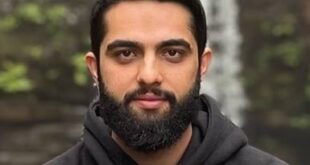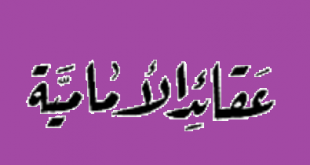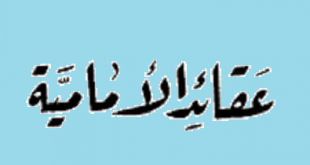The 8 March international women’s strike is an unprecedented opportunity for people to stand against Islamophobia and Israeli apartheid, while supporting Palestinian self-determination.
The strike call for a “feminism for the 99 percent” includes explicit demands for an “anti-racist, anti-colonial feminism,” the decolonization of Palestinian land and the tearing down of apartheid walls, whether they be along the US-Mexico border or in the occupied West Bank.
Those who have endorsed the call include the political prisoner Rasmea Odeh and Angela Davis, a veteran campaigner for justice and a staunch supporter of the Palestinian call for boycott, divestment and sanctions (BDS) against Israel.
The march’s platform is, therefore, partly a celebration of the history of Palestinian women and their role in fighting the Israeli occupation. That history is a long one.
This year marks the centenary of the Balfour Declaration. Through that document, Arthur James Balfour, then Britain’s foreign secretary, promised to support the establishment of a “Jewish national home” – a euphemism for a Jewish state – in Palestine.
In the 1920s, women protested against the Zionist colonization program that Balfour had backed.
A women’s conference was held in Jerusalem during 1929.
Following it, a delegation of 14 women called to see John Chancellor, then the British high commissioner for Palestine. The women called for a revocation of the Balfour Declaration and objected to the beating of demonstrators, the ill-treatment of prisoners and the collective punishment of villages by the British authorities then ruling Palestine.
Key role in struggle
During the 1930s Arab rebellion in Palestine, women collected funds and distributed food to detainees. They also delivered food, weapons and water to men involved in the rebellion.
In 1948, Palestinian women fought in armed battles against Zionist forces.
Women in Jaffa formed Zahrat al-Uqhuwan (the Daisy) shortly before the Nakba, the 1948 mass expulsion of Palestinians. That organization delivered medical services, food, water and ammunition to Palestinian rebels.
During the 1948-1968 period, Palestinian women played key roles in al-Ard (The Land), a resistance movement eventually suppressed by Israeli authorities.
Since 1967, Palestinian women have played numerous roles in Palestinian freedom struggles. Women like Fatima Barnawi participated in armed resistance.
In January 1969, Palestinian women staged a sit-in strike in front of Israeli prisons and detention centers demanding release of imprisoned family members. In Gaza alone, 65 women died resisting the occupation between 1967 and 1970.
Fear forbidden
In more recent times, Palestinian women were central to the mass uprising of the first intifada that began on 9 December 1987, the day fear was forbidden and the stones were taken up, as the Palestinian journalist Makram Makhoul put it.
The intifada began after four Palestinians were killed at an Israeli checkpoint in Gaza, and 17-year-old Hatem Abu Sisi, was murdered by an Israeli officer shooting into a crowd of grieving Palestinian protesters.
The women’s committees that had existed before the uprising provided some of the leadership of the emerging popular committees that were of critical importance to the intifada.
The leadership was involved in organizing relief services and raising funds for prisoners and their families. It also arranged legal assistance and undertook leafleting to organize more people to join the intifada.
When Israel shut down Palestinian schools – a common tactic of the occupation forces – women organized underground alternative schools that sprung up in homes, mosques and churches. Women were also central in organizing the mass boycott of Israeli goods.
On 8 March 1988, the women’s committees that had organized Palestinian women workers, students and housewives called for a joint program on International Women’s Day.
The committees arranged child care services to allow for mass participation of women in popular committees and trade unions. The program also encouraged women to join the general strikes taking place all over the West Bank and Gaza, and to organize defenses against raids by Israeli soldiers and settlers.
During the second intifada that began in 2000, Manal Abu Akhar – who was shot in the chest as a child during the first intifada – used her home in Dheisheh, a Bethlehem-area refugee camp, to shelter fighters.
She also helped to “de-arrest” Palestinians seized by the Israeli military. Palestinian women would throw their bodies on the ground to try to create chaos so that others could escape.
Abu Akhar also used her home as a lookout to monitor the movement of the Israeli military.
Support BDS
More recently, Palestinian women have been caught in Israel’s deadly crackdowns. In October 2015, 17 year-old Dania Irsheid was shot dead at an Israeli checkpoint in Hebron. Israeli soldiers said she was shot because she threatened them with a knife but that has been denied by witnesses.
Another teenager, Bayan al-Esseili, was shot dead that same month near the Kiryat Arba settlement in Hebron.
A grouping called the Jerusalemite Women’s Coalition spoke out against those killings.
Speaking as women, mothers, sisters, daughters and youth, the coalition called for the “protection of our bodily safety and security when in our homes, walking in our neighborhood, reaching schools, clinics, work places and worship venues.”
“We, the women of occupied East Jerusalem, are politically orphaned,” the groups stated. “We are victims without protection, as the Palestinian Authority has no right to protect us in our city, and the Israeli state treats us as terrorists who should be humiliated, attacked, violated and controlled.”
And on 8 March last year, Palestinian women released a statement of solidarity with the thousands of Palestinian women who have been incarcerated by Israel since 1967.
The statement was written as more than 60 Palestinian women were behind Israeli bars. It protested the ongoing denial to Palestinian women of healthcare and education, and the horrific conditions faced by Palestinian women imprisoned for resistance to the occupation.
This year’s 8 March platform urges participants to keep on demonstrating their support for Palestinian liberation after the march is over.
The platform’s demand for open borders, for immigrant rights and for the decolonization of Palestine should lead demonstrators directly to support for the BDS movement.
The Palestinian BDS call demands an end to Israeli occupation of Arab lands, full and equal rights for Palestinian citizens of Israel, dismantling of the Israeli apartheid wall in the West Bank and implementation of UN resolution 194 supporting the right of Palestinian refugees to return to their homeland.
Those goals are fully in keeping with the spirit of the 8 March platform.
Trade unions fighting in the West that have endorsed the platform should support BDS tactics as a means of demonstrating solidarity with Palestinian women workers – both those in and outside trade unions.
The unemployment rate for Palestinian women in the West Bank stood at 28.5 percent in the last few months of 2016. That was twice as high as the rate of male unemployment.
In Gaza, the rate of female unemployment was more than 64 percent, according to the Palestinian Central Bureau for Statistics. The corresponding rate for men was 33 per cent.
These data demonstrate why every Palestinian trade union supports the BDS campaign against Israel.
Reject “imperialist feminism”
The 8 March call for an “an end to gender violence,” including police brutality and “state policies” that engender poverty can bring demonstrators into direct solidarity with Palestinian feminists.
As the scholar and activist Nada Elia has noted, Israel’s infrastructure is “designed to sustain high rates of miscarriages by blocking basic resources such as water and medical supplies, forcing women in labor to wait at military checkpoints on their way to a hospital, and generally creating inhumane and unlivable conditions for Palestinians. This also increased miscarriages, pre-term labor and stillbirths. Ethiopian-Israeli women, most of them Jewish, have also been subject to mandatory contraceptive injections without their consent.”
Demonstrators on 8 March can link their struggles to ongoing work by groups like the General Union of Palestinian Women which organize around battles for justice for Palestinian women.
Under Donald Trump’s presidency, the violent expansion of Israeli settlements has continued apace, and we must prepare to resist any impending plans for war against Gaza. But we cannot afford to wait for the next bombs to fall to know that Gaza itself is already unlivable and that the UN has predicted that conditions will worsen by the end of this decade.
To be a Palestinian woman in Gaza is to have no control over one’s body and the ability to live any semblance of a full life. The US has funded and supported the racist violence inflicted on the women, men and children of Gaza.
Finally, those who advocate for global feminism on 8 March must not let their political support for Palestine become entangled with support for Zionism or the Israeli occupation. Now more than ever, a sharp line must be drawn between those on the left who avow what Deepa Kumar, a writer and academic, calls “imperialist feminism” and those who fight for the emancipation of women everywhere.
Only a feminism “from the river to the sea” and beyond can turn the tide against the brutally gendered violence of the US and Israel. Only an anti-racist, anti-imperialist feminism can end the war on Palestinian women that is a building block of Zionism, the Israeli occupation and the US empire.
Source: electronicintifada.net
 WILAYAH NEWS VOICE OF THE GLOBAL AWAKENING
WILAYAH NEWS VOICE OF THE GLOBAL AWAKENING






